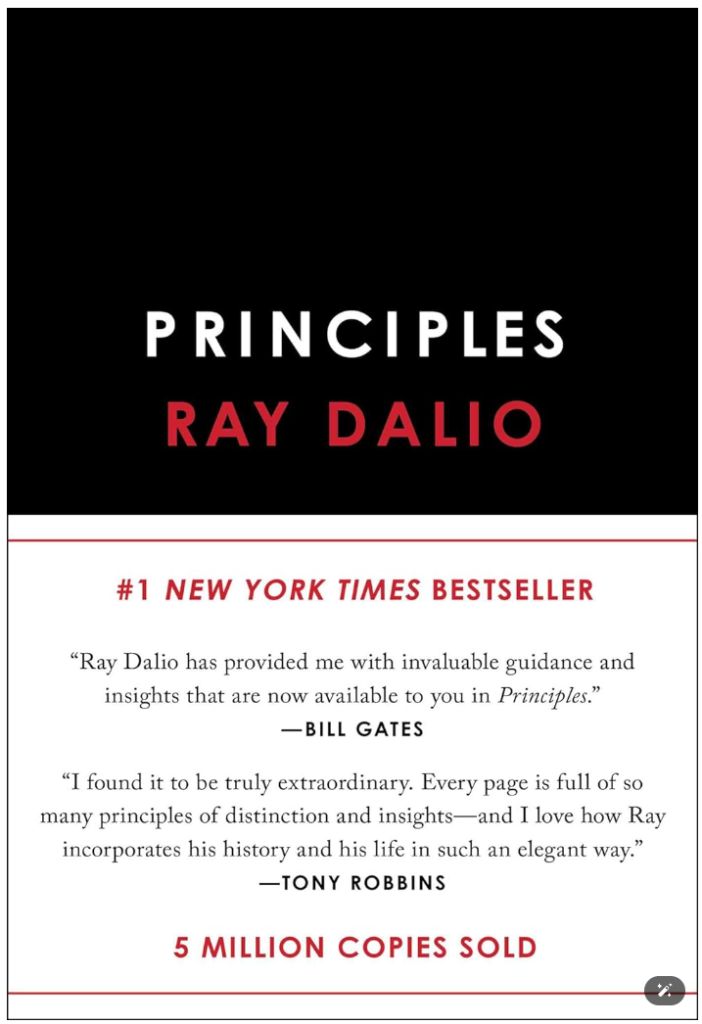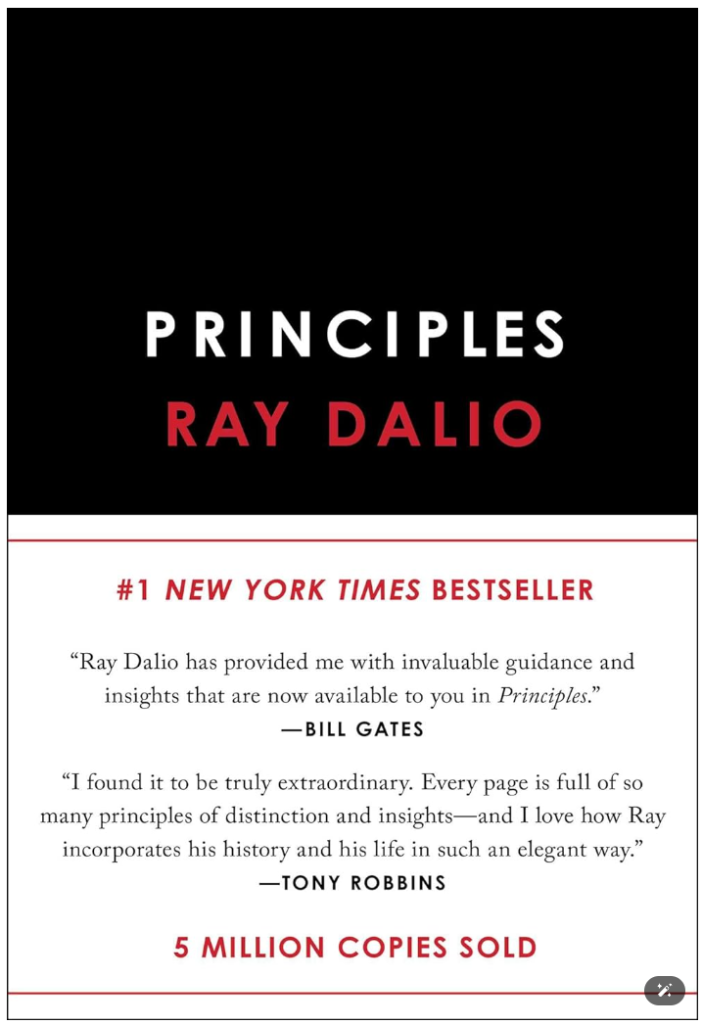“Significant…The book is both instructive and surprisingly moving.” —The New York Times
In today’s fast-paced world, having clear principles can guide you toward success and personal growth. These principles act as a foundation for making decisions that align with your goals. By establishing these standards, you can streamline your efforts and focus on what truly matters. Imagine applying this structured approach to various aspects of your life to make progress more achievable.
You will also learn about a five-step system that can help you overcome obstacles and improve your journey. Embracing an open-minded attitude is vital for growth as well. Recognizing the insights of others can lead you to better decisions and foster an environment of learning. By integrating these concepts into your daily life, you can navigate challenges more effectively and work towards your aspirations.

Creating and Implementing Principles
The Importance of Principles for Success
Principles are key truths that guide your actions and decisions to achieve what you want in life. They help you consistently approach similar situations, allowing for effective decision-making. For instance, without principles, workouts may lack structure. You could end up exercising randomly, missing out on effective techniques, and risking injuries. Defined principles can direct your efforts and enable you to adjust them when necessary.
Structuring Decision-Making
Using principles provides a system for making decisions. With a clear set of guidelines, you can concentrate on the more complex challenges that arise. As you encounter issues, the principles you’ve established allow you to identify and troubleshoot problems effectively. For example, increasing weights in your workouts may have worked initially but could lead to injuries if applied indiscriminately later.
Evaluating and Revising Principles
It’s essential to review and refresh your principles regularly. Think of yourself as an engineer who must adapt these guidelines based on real experiences and information. Each time you face a situation, evaluate whether your principles still hold true or if they need to be updated. This keeps you aligned with your goals and helps avoid setbacks.
Documenting and Testing Principles
Writing down your principles is a vital practice. This helps make them clear and understandable, both for yourself and others. Keep a list of significant encounters and develop principles for each type of situation. Stress test these principles when confronted with similar circumstances, allowing for necessary updates. For example, popular investment principles can guide you, such as “Invest in what you know” or “Talk to people.” These phrases should guide your decision-making and help refine your thinking as you seek continuous improvement.
Ray Dalio’s Five-Step Process for Success
Setting Clear Goals
Begin by defining what you truly want. Set specific and challenging goals. If you limit yourself to only what feels achievable, you may miss out on bigger opportunities. Dream big; aiming high pushes you to grow.
Identifying and Addressing Problems
Recognize any obstacles that get in the way of your goals. Don’t ignore these challenges. Instead, see each problem as a chance for improvement. Acknowledge your weaknesses and look for solutions early on.
Accurate Problem Diagnosis
Dig deep to understand the root causes of your issues. Describe your problems accurately. For example, if your investment isn’t performing well, identify why. Ask questions that lead you to the core of the problem, moving beyond surface-level explanations.
Designing Effective Plans
Create a plan that outlines the steps you need to take. Reflect on your past decisions and visualize what needs to happen to achieve your goals. Write down your plan to keep it clear and visible. It’s crucial to focus on planning before jumping into action.
Execution of Plans and Forming Habits
Put your plans into action with purpose. Form solid habits by creating to-do lists that prioritize tasks from most to least important. Establish clear metrics to track your progress, and stay committed to your path. Consistency will lead to results.
The Importance of Radical Open-Mindedness
Recognizing Symptoms of a Closed Mind
You might not realize when you are being closed-minded. Here are some signs to look out for:
- You avoid having your ideas questioned.
- You often make statements instead of asking questions.
- You interrupt others and don’t let them speak.
- You focus more on expressing your views than understanding theirs.
It’s essential to shift your focus from needing to be right to discovering what is true. Being too proud of your knowledge can limit your growth and decision-making.
Achieving Radical Open-Mindedness
To be more open-minded, start by letting go of your ego. Listen to opposing views, even if it’s uncomfortable. A helpful approach is to think about your role in discussions:
- Ask yourself if you are the master or the disciple. This helps you know when to speak and when to listen.
- When faced with challenges, view them as learning opportunities rather than threats.
Remember that growth comes from being willing to reconsider your ideas and beliefs.
Master or Disciple: Knowing Your Role
Understanding when to be the master or the disciple can improve your learning experience.
- In discussions with experts, like top investors or skilled musicians, adopt the disciple role. Ask questions and absorb their insights.
- In contrast, when you’re more knowledgeable about a topic, take the master role and share your expertise.
Being aware of your role helps you engage more effectively. Embrace feedback and use it to refine your thinking.
Investment Principles from Ray Dalio
Investing within Your Circle of Competence
Focus on what you know best when making investment choices. This helps you stay informed and make better decisions. When you invest in areas where you have knowledge and experience, you can reduce risks and increase your chances of success.
The Margin of Safety Concept
This principle suggests you should always leave room for error in your investments. By ensuring that the price you pay for an asset is lower than its true value, you create a safety net. This protects you against losses and provides a buffer for unexpected market changes.
The Value of Diverse Perspectives
Talking to others can provide insights that you might miss. Different viewpoints can help you see your investments from new angles. Engage with a variety of people to challenge your thinking and improve your decision-making process.
Company and Stock Relations
If you like a business and its products, there is a good chance you will appreciate its stocks too. Look at companies whose culture and mission resonate with you. This connection can lead to a more confident investment.
15 to 20 Uncorrelated Streams of Income
Having multiple sources of income can lower your risk, while still allowing for solid returns. Aim for 15 to 20 different streams that do not move in tandem. This strategy provides more stability and reduces the impact of market fluctuations on your overall financial health.
For more book about Business & Money click here
Lern more about THE PSYCHOLOGY OF MONEY (Morgan Housel)
Lern more about how to manage your mone

Leave a Reply